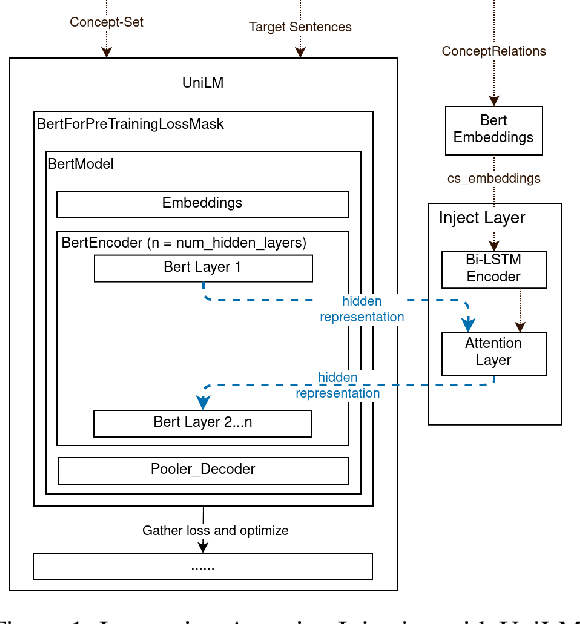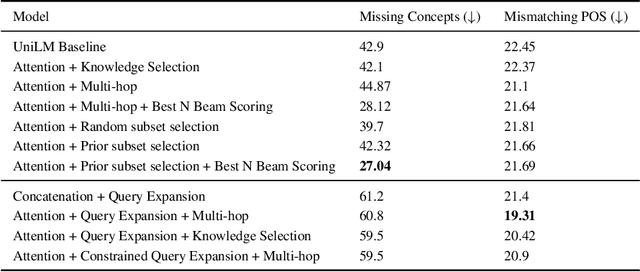Lexically-constrained Text Generation through Commonsense Knowledge Extraction and Injection
Paper and Code
Dec 19, 2020



Conditional text generation has been a challenging task that is yet to see human-level performance from state-of-the-art models. In this work, we specifically focus on the Commongen benchmark, wherein the aim is to generate a plausible sentence for a given set of input concepts. Despite advances in other tasks, large pre-trained language models that are fine-tuned on this dataset often produce sentences that are syntactically correct but qualitatively deviate from a human understanding of common sense. Furthermore, generated sequences are unable to fulfill such lexical requirements as matching part-of-speech and full concept coverage. In this paper, we explore how commonsense knowledge graphs can enhance model performance, with respect to commonsense reasoning and lexically-constrained decoding. We propose strategies for enhancing the semantic correctness of the generated text, which we accomplish through: extracting commonsense relations from Conceptnet, injecting these relations into the Unified Language Model (UniLM) through attention mechanisms, and enforcing the aforementioned lexical requirements through output constraints. By performing several ablations, we find that commonsense injection enables the generation of sentences that are more aligned with human understanding, while remaining compliant with lexical requirements.
 Add to Chrome
Add to Chrome Add to Firefox
Add to Firefox Add to Edge
Add to Edge